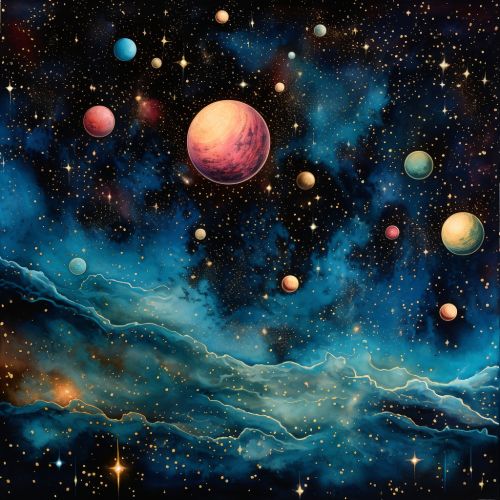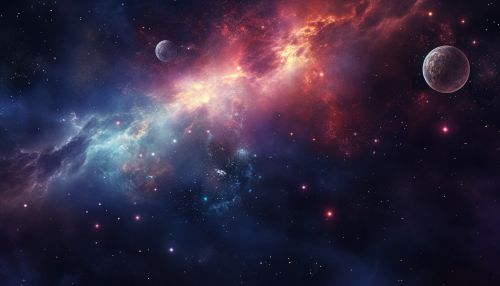Space physics
Introduction
Space physics, also known as space science, is a branch of physics that studies the physical properties of the space environment. It encompasses a wide range of topics, including the sun, solar system, interstellar medium, and cosmology. This field of study is essential for understanding the fundamental processes that occur in the universe and for the development of space technologies.


History
The history of space physics can be traced back to the early observations of the night sky by ancient civilizations. However, the scientific study of space physics began in earnest with the advent of the space age in the mid-20th century. This period saw the launch of the first artificial satellites, which provided scientists with a means to directly study the space environment.
Solar Physics
Solar physics is a subfield of space physics that focuses on the study of the sun. This includes the investigation of the sun's structure, its energy production processes, and its solar wind. The sun's behavior has a significant impact on the space environment of the solar system, a phenomenon known as space weather.
Planetary Physics
Planetary physics, another subfield of space physics, involves the study of planets, their moons, asteroids, and comets. This includes understanding their composition, structure, and the physical processes that occur within them. Planetary physics also investigates the interaction between these bodies and the space environment.
Interstellar Medium
The interstellar medium is the matter and radiation that exists in the space between the stars. This includes dust, gas, and cosmic rays. The study of the interstellar medium is crucial for understanding the life cycle of stars and the formation of galaxies.
Cosmology
Cosmology is the study of the universe as a whole. This includes understanding its origin, evolution, and ultimate fate. Cosmologists use observations from space physics to test theories about the universe, such as the Big Bang theory and the theory of cosmic inflation.
